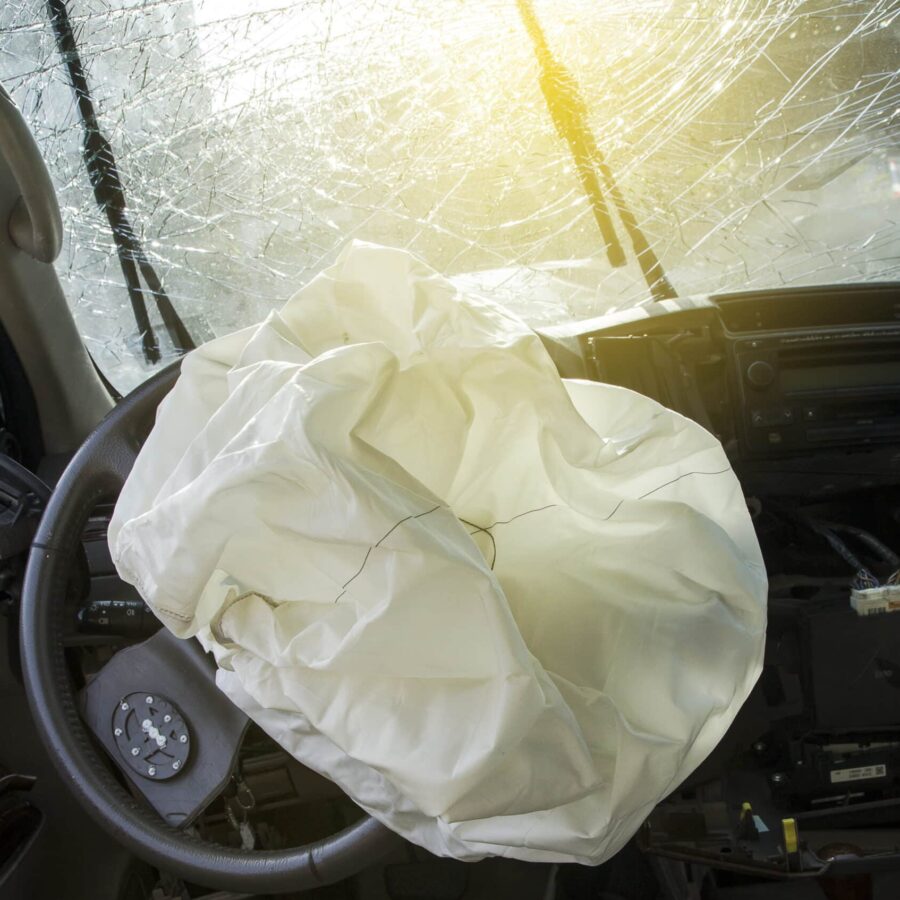The Center for Auto Safety (CAS) continues to urge the National Highway Traffic Safety Administration (NHTSA) to curb its deadline extensions to automakers charged with providing enough replacements for recalls of Takata airbags. In July 2018, the safety advocacy group asked the agency not to exempt General Motors from recalling passenger airbags in many of its vehicles, which the automaker has refused to do. It had previously requested that NHTSA stop allowing other automakers to continuously extend their deadlines. Confirming CAS’s concerns, a government report recently found that NHTSA’s oversight of the Takata recall program is inadequate and hindering progress.
So far, 19 automakers have recalled about 50 million Takata airbags in about 37 million vehicles, with more expected by the end of the year. As recalls related to Takata’s potentially explosive airbags began piling up in 2014, NHTSA took the unprecedented step of taking command of the recalls. To that end, it created a Coordinated Remedy program in November 2015, setting up a phased system with rolling recalls based on the airbags’ age and geographical location because they are more prone to explosion after several years in hot and humid climates. NHTSA also implemented Priority Groups to specify timeframes in which the automakers actually had to have enough replacement airbags to complete each recall.
The problem is that NHTSA has repeatedly granted extensions on these Priority Group time limits to Ford, Mazda, BMW, and Mercedes, which argue they do not have the capacity to design, engineer, and test replacement airbags that meet their specifications in the prescribed time. Some of the new deadlines allow automakers to wait until September 30, 2019, to begin repairs.
In January 2018, after Ford confirmed a second death in a 2006 Ranger caused by an exploding Takata airbag inflator, CAS issued a press release calling on NHTSA to reexamine all extensions because “no such extension on fear, dread, or potential injury or loss of life has been granted to the owners of these vehicles, which contain, in the words of the Takata recall independent monitor, a ‘ticking time bomb.’” Given that the death occurred in West Virginia (not considered a hot and humid location), CAS questioned the appropriateness of allowing further delays in remedying this dangerous situation. The Ranger was in a group of vehicles that should have been in the recall process beginning four months before the driver’s death, under the previous deadlines. Another death occurred in a 2006 Ford Ranger in December 2015, putting Ford on notice three years ago that the airbag in the vehicle was dangerous.
In July 2018, after GM submitted its third petition in two years to NHTSA to allow it to forgo the passenger airbag recalls altogether, CAS again weighed in, requesting that NHTSA finally deny the petitions and force GM to implement the recalls. GM claims that the Takata passenger airbag inflators used in its SUVs and trucks differ from others and that independent testing has shown that this design “will continue to operate safely for decades, even in the highest temperature and humidity regions” because their design features and locations better protect them from moisture and weather elements. But CAS contested the findings, arguing the testing used artificial conditions that didn’t account for real-world variables that increase the risk of failure, like vibrations that occur during normal driving which damage the propellant, making it more likely to rupture.
The Department of Transportation’s Office of Inspector General issued a report in July 2018 determining that, “NHTSA’s process for monitoring for light passenger vehicle recalls lacks documentation and management controls, and does not ensure that remedies are reported completely and in a timely manner” and does not follow its own procedures for addressing low recall rates.
If you have questions about injuries from Takata airbags, call Newsome Law, P.A. at 888-808-5977 for free information.


